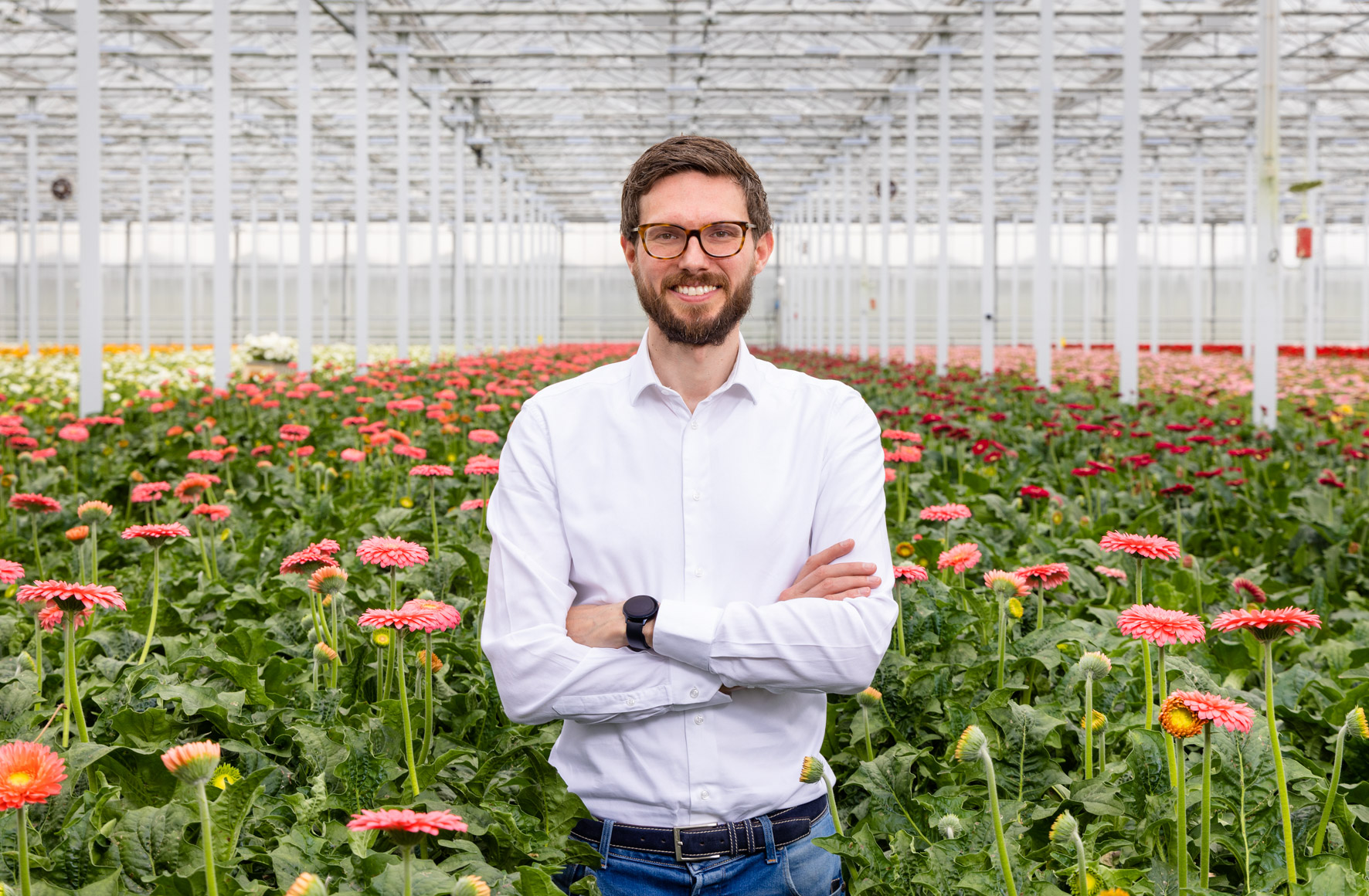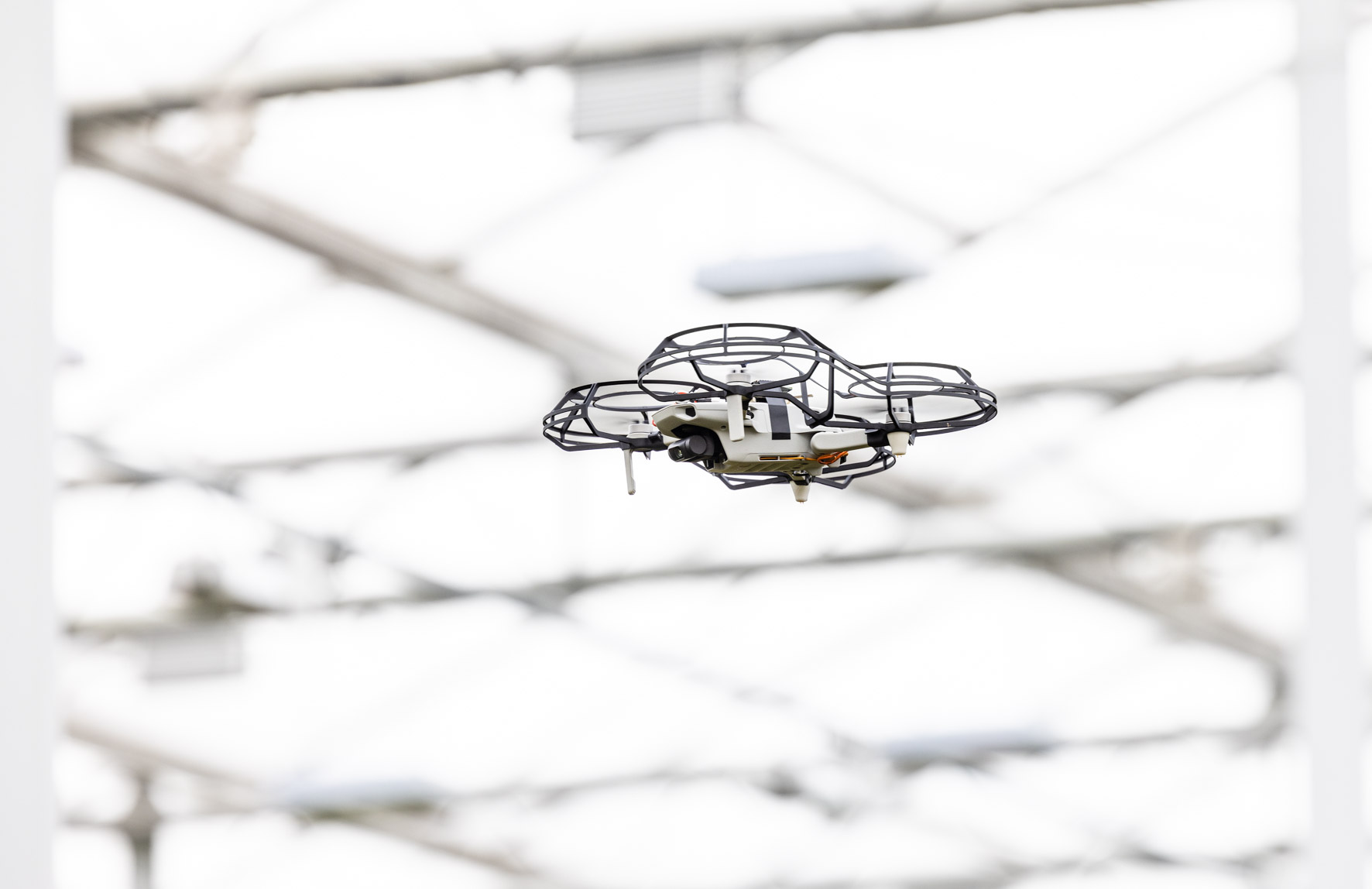Self-flying drones that monitor greenhouse diseases and pests
TU Delft, Royal Brinkman and start-up Mapture have developed the next step in drone technology for agriculture. Their new AI-enabled drone takes off completely independently, flies over rows of plants and people in a greenhouse, takes high-resolution photos, and lands safely back on its charging station. The photos provide growers with information about diseases and pests much more quickly.
The drone is a long-established and proven way to collect large-scale and autonomous data, but most current self-flying drones operate only outdoors, high in the sky. Guido de Croon, professor of bio-inspired drones at TU Delft said that the reason relates to GPS: “Drones typically rely on GPS to know where they are and where to go. In indoor spaces, such as greenhouses, GPS is not reliable enough for navigation when flying autonomously. At the Faculty of Aerospace Engineering we are working on light, small drones that can fly independently using AI. This is important, because such drones are very safe for humans, who don’t need to take extra safety measures when flying the drones. Making such a light drone fly independently is a major challenge, because they have far fewer sensors and less on-board computing power than, for example, a self-driving car. We have developed a localization technique – the drone combines signals from radio beacons in the greenhouse with its own observations to find its location as precisely as possible.”
Precision horticulture
The growing world population poses a major challenge to our food supply. One of the prospects on the horizon in the horticultural sector is the realization of precision horticulture. Rogier Kemmeren, innovation specialist at Royal Brinkman: “This 'Drone-in-the-box' system is an important means of enabling precision horticulture in the future. We want to measure and understand how a plant is doing, and what it needs for the best possible growth. Achieving this requires a high degree of automation and digitization. One of the ingredients in the precision horticultural mix will be independently operating drones, and this collaboration between TU Delft, Royal Brinkman and Mapture has resulted in a major step forward in this area.”
Practical testing
Greenhouse company Gerbera United took part in a large-scale practical test with 'Drones-in-the-box' at their location in Nootdorp. Company director Gijsbert Verboom said they are developing a future-proof crop protection strategy: “Building up data using these drones is the first step for us. We have started recognizing leafminer damage to the crop, and damage from whiteflies and caterpillars are next. We see many opportunities for this innovation in practice. Our drones can detect disease at a much earlier stage, and this is crucial because we can avoid having to clear large quantities of flowers. The 'Drone-in-the-box' innovation project aims to develop solutions for a better and more sustainable horticultural sector.”
Contact
Press officer Digital Society TU Delft: Pauline Bijster, H.P.Bijster@tudelft.nl or 06 484 210 89
Professor Guido de Croon, G.C.H.E.deCroon@tudelft.nl
Click here to visit the website


